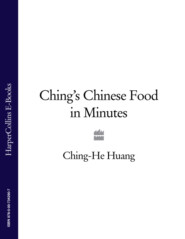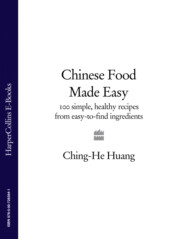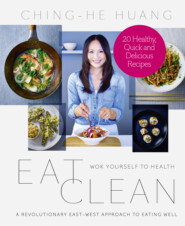По всем вопросам обращайтесь на: info@litportal.ru
(©) 2003-2024.
✖
Eat Clean: Wok Yourself to Health
Автор
Год написания книги
2019
Настройки чтения
Размер шрифта
Высота строк
Поля
Caffeine is a stimulant and can wreak havoc with the body’s own natural metabolism, as it impairs the metabolising of glucose in the body which could potentially lead to weight gain. It is known to raise blood pressure in some people suffering from hypertension. It may cause insomnia, increase allergies, and cause indigestion, severe headaches, migraines and forceful heart contractions. This stimulant interferes with the body’s natural ability to regulate itself, so it is best to limit coffee and chocolate intake.
Why no GM products?
Genetically modified (GM) foods are derived from organisms whose genetic material has been altered using genetic engineering – for example, through the introduction of a gene from another organism. The human species has evolved over thousands of years by adapting slowly to its natural environment. Originally all foods were organic, yet in the last 20 years the human diet has changed. The biotech industry has targeted two of the most commonly eaten foods – corn and soy – and has altered them to ‘living modified organisms’. Now several countries in the world have banned GM foods because the impact and true cost to humans and the environment is unknown. This tampering with nature’s genetic code could have detrimental effects on human health. There have been several independent studies that show that GM products give rise to tumours in rats, produce smaller animal foetuses and contain high levels of the toxin ghlyphosate, which is linked to birth defects and illnesses. GM foods also cause severe inflammation of the stomach and enlarged uteri in pigs (whose gastro-intestinal tract is similar to that of humans).
I believe that not enough research and government regulation has gone into protecting our food sources and it is best to stay away from GM products. GM crops can also pollute other crops and many studies report that the world’s natural ecosystem could be destroyed by GM crops, which can eliminate their competing species in the wild, rendering many original life forms extinct.
We do not know the damaging health effects of consuming GM products either, and with an increase in gluten intolerances, coeliac disease, auto-immune diseases and cancer I think it is best not to take any risks, especially when there has been no conclusive evidence that GM foods are safe.
To read more, please see www.collective-evolution.com (http://www.collective-evolution.com)
Why low sugar?
Sugar is highly addictive. It can cause stress to the adrenal glands that regulate your metabolism and can put your system on a sugar high followed by a sugar low, with accompanying mood swings. Some experts suggest that ingesting excessive amounts of sugar is proven to lead to type 2 diabetes, which is reversible through a low-sugar diet. Sugar is present not only in the diet in the form of granular sugar, syrups and fructose, but also in carbohydrate-heavy starchy foods (including wholegrain varieties) such as rice, pasta, noodles and bread. Once digested, these sugars are turned into glucose, and this type of sugar can spike insulin levels and cause havoc with our body’s ability to naturally regulate itself.
The main problem is that many of the foods we consume today are high in sugar. A person may consume a sugar-laden smoothie or cereal for breakfast, followed by a large pasta meal at lunch and then a starchy rich meal for dinner, including a sweet dessert. A high-sugar diet also feeds the bad bacteria and yeast, such as candida, in our body, an overgrowth of which leads to all sorts of problems, including from skin rashes, heart palpitations and leaky gut syndrome (where the bacteria has eaten away at the walls of the intestines and bacteria and toxins from bacteria waste leak back into the bloodstream). In fact, a candida overgrowth as a result of too much sugar is a silent killer that scientists are only sharing with the public now.
Some doctors prescribe a strict no-sugar diet to limit the growth and spread of cancer cells within the body. Sugar is also incredibly ageing, as glucose in the cells shrink the cells; in the same way that salt is highly dehydrating, so too is sugar.
Sugar from seasonal fruit is a better, natural source. Combined with the naturally occurring fibre in fruit, this type of sugar provides slower-release energy than sweet drinks or sugary snacks. It is also less likely to upset your insulin and natural metabolism levels. Ideally, we should be eating less than 5g of sugar per day per 100g of food. I have included a glossary at the back of the book that details which fruits are in season and their respective calorie content.
As mentioned, bread and pasta spike your insulin levels and increase the glucose and sugar levels in your body, making vitamin absorption difficult. Surely these are more than good enough reasons to reduce one’s sugar consumption? The recipes in this book contain some sources of complex carbohydrates, such as brown rice, quinoa or noodles, including some sugars in vegetables such as carrots. However, limiting the frequency of eating these and their amounts, keeping their consumption in balance throughout the day, will limit the amount of glucose in the bloodstream.
Why reduce wheat?
It is also wise to reduce wheat consumption and ingredients that contain gluten, as gluten not only increases glucose levels but is also responsible for gastrointestinal issues, autoimmune diseases and thyroid problems.
Why no smoking?
Give up smoking! Did you know that along with nicotine (used as an insecticide), cigarettes also contain cadmium (used in batteries), stearic acid (used in candle wax), toluene (used as an industrial solvent), ammonia (used in toilet cleaners), paint, methanol (used in rocket fuel), arsenic (used in rat poison) and hexamine (used in barbecue lighter fuel)? Smoking also creates gases such as methane and carbon monoxide – more toxic chemicals. It is widely known that long-term smoking causes lung cancer.
Alkalinity equals balance and low inflammation and toxicity
Alcohol, sugar and caffeine, as mentioned before, are all acid-forming foods that increase the pH of the body. The body’s desired state is an alkaline state. You can check your alkaline levels by putting a strip of litmus paper on your tongue to test your saliva. Healthy saliva gives a reading of pH 6.5–7.5, meaning it is in an alkaline state. It is important to make sure that the body is not in an acidic state, as acidity increases inflammation of the body, leading to acid reflux, digestion problems, allergies, indigestion, bloating, heartburn, fatigue and mood swings. The long-term health problems of a body in a constant acidic state can lead to serious and more chronic illnesses.
Food provides sources of both acidic and alkaline properties, and by eating the right foods, the body can maintain a healthy balanced state of alkalinity. I have created recipes with this balance in mind. Most foods, such as meat, fish, dairy, grains, most nuts, sugar, shellfish, soft drinks, processed tomatoes, corn, beans and sweet potatoes, are acidifying. Whole fruits and vegetables, barley, buckwheat and Brazil nuts are alkalising. It is important to be aware of the pH of the food you are consuming, together with food ingredients, so that you can keep the body in balance. By limiting alcohol, sugar, caffeine and dairy products in your diet, your body is on its way to a low acid state and so low toxicity. By eating the right foods, the body has a chance of healing and re-balancing itself.
Routine is Good For Health: Cleanse Every Day
Back in our primordial days, we slept when it got dark and we woke with the sunrise. There were no in-between snacks or munchies at midnight, and so our body had a long rest period from eating. This is a period of natural fasting when the body has a chance to renew itself and the digestive system gets a break. So when we wake, we awake hungry and ready for food, hence why we break-the-fast. Breakfast is considered to be the most important meal of the day, setting you up for the day to come.
However, many Chinese practitioners recommend drinking a glass of body-temperature water (also known as the ‘life-saving first drink’) before breakfast, because it helps to rehydrate the body after a long night’s fast. It also cleans the gut so that it can work most efficiently and absorb nutrients. Many health books recommend drinking up to 1 litre of warm water first thing in the morning and then waiting 90 minutes before eating, to help flush out all the toxins. Toxins also build up in the saliva around the teeth at night, so it’s important to get up, clean your teeth and then drink warm water, otherwise you are flushing the toxins that have collected in your mouth right back inside your body, meaning that it has to work harder. During the 90-minute wait it is recommended that you try to go to the toilet so that any waste matter can be expelled.
If you have trouble going to the toilet, you can try 1 tablespoon of organic castor oil mixed with the juice of 1 large orange. Wait 90 minutes and drink a cleansing herbal tea during this time until you get some bowel movement. This can be done once a month to keep the system cleansed. Personally I find it is not as harsh on my system as other detox pills and methods.
4 Drinks to Help You Break-The-Fast
1. A litre of warm water from the kettle
Drink and wait 90 minutes before eating solid foods.
2. Organic castor oil and orange juice (once a month)
1 tablespoon organic castor oil
juice of 1 large orange
Mix together and drink on an empty stomach. Wait 90 minutes, during which time sip herbal tea before eating solid foods.
Note: If you are pregnant or have bowel disease, please consult your doctor about taking castor oil.
3. Organic cider vinegar drink
1 tablespoon organic, unfiltered, natural fermented apple cider vinegar (look for ones that contain ‘mother’ – strands of proteins, enzymes and friendly bacteria)
250ml warm water
1 teaspoon organic manuka honey (optional – leave it out if you are diabetic)
Mix all of the above together, stir and drink on an empty stomach. Wait 30 minutes before eating solid foods.
4. Lemon juice warm water
juice of ½ organic lemon
250ml warm water
Combine the two, stir and drink on an empty stomach. Wait 30 minutes before eating solid foods.
It is important to get the body into a routine. Breakfast doesn’t appeal to many people and it is to do with lifestyle. For example, if you eat late at night, the body won’t feel hungry until midday the next day, especially if you have had a heavy meal, although the length of this time can vary from person to person depending on their digestion. So it is no wonder that some people don’t care for breakfast and usually skip it.
Some health experts say just eat when you are hungry and listen to your body, and this is true – which is why most late-night eaters would say that breakfasts are not for them. It works, too, because the body naturally adjusts and works around your lifestyle. However, this puts a lot of stress on the body. The body has to work harder to adjust; it has so much waste to eliminate, with thousands of chemical reactions taking place every day, trying to get clean air and supplies all around the body, why shouldn’t we make it our priority to give it a helping hand?
The least we can do is try to follow a regime. This may require a huge change in lifestyle, but a commitment like this is for life if we are to live a healthy long life and make the best use of our bodies and our time on Earth. Personally, when I have a routine I find my sleep patterns are more regulated, I sleep more soundly and when I am fully rested I don’t need an alarm clock to wake me up in the morning – I awake naturally. This is correlated to the time of your last meal: for example, if you wake up at 7am, work back 12 hours and you will notice that a meal that ends at 7pm the night before will mean you will wake up by 7am the next day, because the hunger pangs will naturally awaken you. There are many studies that report that our liver will detox best while we sleep and ideally if we are asleep before 1am. It takes a couple of hours to reach a deep sleep, so the optimum time to get to sleep is around 11pm. As it can take 3–4 hours to digest food, by the time you sleep, the body will be ready to heal itself rather than having to concentrate on digesting food, because the gut will have had time to heal any inflammation it may have.
So try to make a routine and stick to it. By eating a sensible and balanced diet and taking regular exercise, this natural rhythm of fasting and giving your digestive system a break will allow you to keep your weight in check. This is because your body will have the chance to rest, and if we need mental R & R, so does the gut.
The best way to ‘break-the-fast’ is with nutritious, low-GI foods (foods that don’t spike blood sugar levels) that make you feel satisfied and energised for longer.
Calories, Nutrition and Yíngyǎng
For men, nutritionists recommend a guideline consumption of 2,500 calories daily, and for women, 2,000. However, even these values can vary depending on age, metabolism and levels of physical activity. Calories are used to measure how much food you are consuming and it is relatively easy to understand if you are on a weight-loss programme. Of course, it’s simple to say and assume that if you consume more calories than you burn, you gain weight, and if you consume less than you burn, you lose weight.
However, this shouldn’t be the only way to measure food, because it is misleading. Dieticians in the West and Chinese food therapists also think in terms of nutritional value – Yíngyǎng. They think of the food in terms of its nutritional content: fast food has no yin-yang and fresh food has lots of Yíngyǎng. Thinking of the nutritional value of the food, as opposed to its calorific content, helps with your food choices. When we use the term nutritional content or value, we mean in terms of nutrients. So, for example, is the dish or ingredient rich in vitamins, amino acids; is it acidifying or alkalising?
Is the ingredient yin or yang; does it impart a warming quality or a cooling effect on the body? These principles are what differentiate the Eastern and Western approaches to nutrition and therefore to diet and dieting. Having lived in the West on an Eastern diet, I am fascinated by the amount of people who comment on the healthiness of Chinese and Asian cookery – although this is dependent on the quality of the ingredients, the way it is cooked and what with!
Of course, most Chinese and South-East Asian diets are mainly based on fresh ingredients – vegetables, rice, grains and little meat – but they can also be high in sodium and sugar. Yes, we don’t use butter – but we do cook with a lot of oil and sometimes MSG. In the same way that Westerners have introduced the concept of eating salads (via Pizza Hut salad bars) that are deemed healthy to the Chinese and Asians in their respective countries, I have come to realise that a combination of the two disciplines, an East–West integrated approach, may be the way forward for people striving to achieve a balanced healthy diet and a healthy weight that can be maintained in the long term.









